Speakers
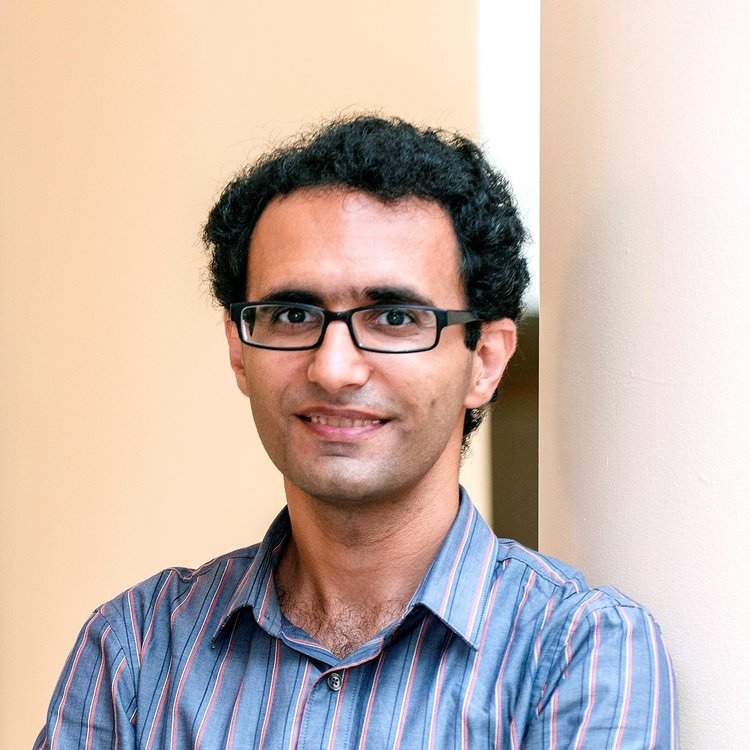 | Babak Momeni
Babak Momeni is an assistant professor of biology at Boston College, working on the ecology of microbial communities at the interface of modeling and experimentation. Following his PhD in electrical engineering at Georgia Tech, he joined the quantitative biology lab at Fred Hutchinson Cancer Research Center where he worked on spatial organization of populations in microbial systems. Current research in his lab looks into mechanistic modeling of nasal microbiota and rational selection/engineering of microbes for bioremediation. |
 | Helen Kettle
Helen Kettle is a mathematical modeller at Biomathematics and Statistics Scotland (BioSS) working on a variety of biological systems from crop pathogens to microbial systems. Previous to that she worked on developing climate system models at the University of Edinburgh, UK. She has currently focussed on modelling digestive microbial systems in humans, ruminants and pigs. She has developed an R package, 'microPop', to model a large range of microbial systems based on ordinary differential equations. |
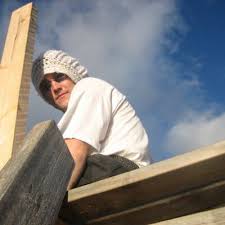 | Leo Lahti
Leo Lahti is an Adjunct Professor in applied mathematics University of Turku, Finland, focusing on ecological modeling of the human microbiome in large population cohorts. He obtained doctoral degree in bioinformatics in the Department of Computer Science, Aalto University, Finland in 2010, developing statistical machine learning methods for data integration in functional genomics. He is currently a visiting researcher in VIB/KU Leuven, Belgium. |
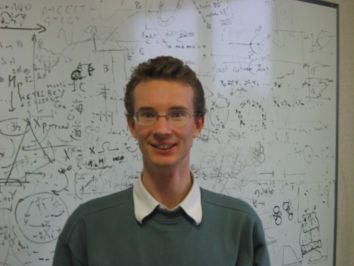 | Didier Gonze
Didier Gonze is a computer biologist from the Unit of Theoretical Chronobiology at Université Libre de Bruxelles. He is interested by non-linear dynamical systems, ranging from genetic networks to microbial population. He is developing and studying mathematical models for circadian clocks in mammals and plants, for the mammalian cell cycle, for cell fate determination during embryonic development in mouse, and for the dynamics of small and large microbial communities. A common goal of all these projects is to unravel links between network structure, dynamical properties (oscillations, multi-stability, etc), and their robustness towards noise and environmental factors. In the context of microbial ecosystems, a particular attention is given to the emergence of complex dynamics and of distinct community types. |
 | Rudy Pelicaen
Rudy Pelicaen is a last year PhD student in metabolic modeling of microbial communities related to food fermentation processes. The focus is on the cocoa bean fermentation process, to gain more insight into this fermentation he turned to modeling the metabolism of acetic acid and lactic acid bacteria. Research work includes improved genome annotation for accurate genome-scale metabolic model reconstruction, flux balance analysis to gain more insight into distinct metabolic flux distributions, and dynamic modeling of the fermentation process using ordinary differential equations. His promotors are prof. dr. Didier Gonze of the Université libre de Bruxelles and prof. dr. Stefan Weckx of the Vrije Universiteit Brussel. |
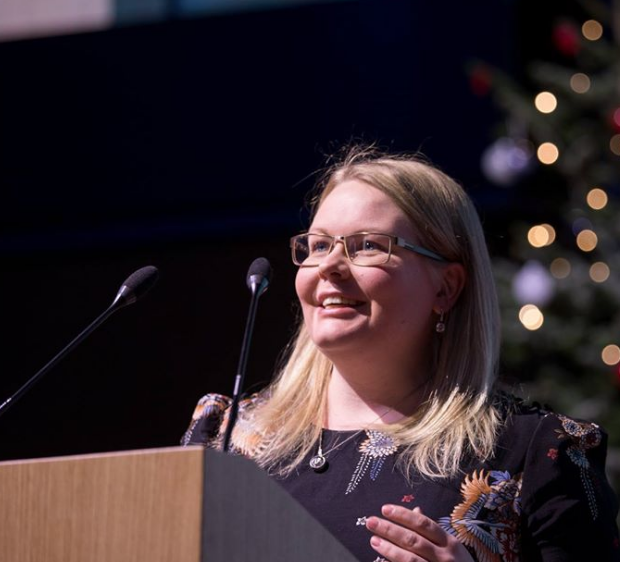 | Stefania Magnusdottir
Stefania Magnusdottir is a systems biologist who specializes in metabolic modeling of microbial communities. She did her PhD at the University of Luxembourg under the supervision of Prof. Ines Thiele. There, she created genome-scale metabolic reconstructions of human gut microbes and combined them with metagenomic data from human samples to create personalized microbial community models. She is now a postdoc at the University Medical Center Utrecht in the Netherlands working on modeling metabolic interactions in patient-derived microbial communities. |
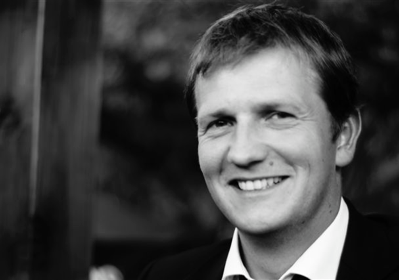 | Damien Eveillard
Damien Eveillard is an associate professor at the Université de Nantes. After studying Oceanography at Sorbonne Université, Damien Eveillard obtained his Inria Lorraine thesis in 2004, then completed a postdoctoral fellowship at Texas A&M University. Holding research at the University of Nantes since 2006 in the ComBi team, he specializes in the modelling of living systems by constraints (bioinformatics and systems biology) working on genes regulatory networks and metabolic networks. Since 2010, his research has focused on modelling microbial communities. More specifically, Damien is involved in the modelling of marine systems - notably through his recent involvement in the Tara Ocean consortium, USAP polar missions, 3 ANR projects dedicated to the modelling of marine systems, member of the french GDR Environmental Genomics office, co-leader of a MASTODOM project dedicated to the interaction between IT and Oceanography, and he is one of the five members of the TO-SEE "Tara-Ocean Systems Ecology & Evolution" research federation. |
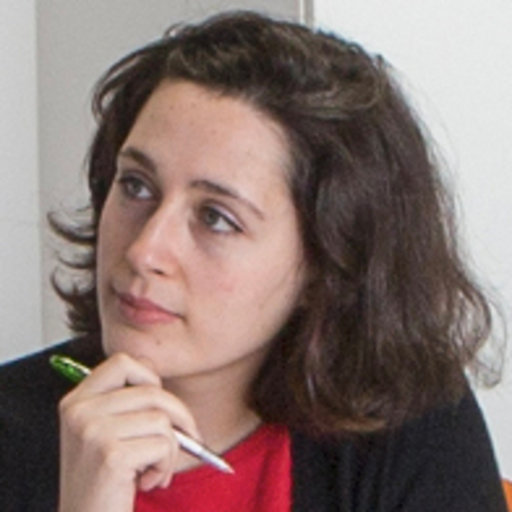 | Antonella Succurro Antonella Succurro pursued her doctoral studies in Particle Physics at the CERN (the European Organization for Nuclear Research) laboratories, and in 2014 she decided to move to the field of computational and theoretical Systems Biology. She has been a fellow of the Marie Curie Initial Training Network "Accliphot" at the Heinrich Heine University of Düsseldorf between 2014 and 2016 in the group of Oliver Ebenhöh and during that time she visited the group of Daniel Segrè at Boston University (MA, USA). She quickly developed her own research interest on understanding the dynamics of microbial communities, in particular bacterial communities associated with microalgae. As a fellow of the Cluster of Excellence on Plant Sciences (CEPLAS) at the University of Cologne between 2016 and 2018, she continued developing her research in the context of plant root-associated microbiome. Today she is a scientific officer of the West German Genome Center at the Life and Medical Sciences Institute in Bonn and her research focuses on understanding the emerging properties of heterogeneous cell populations. |
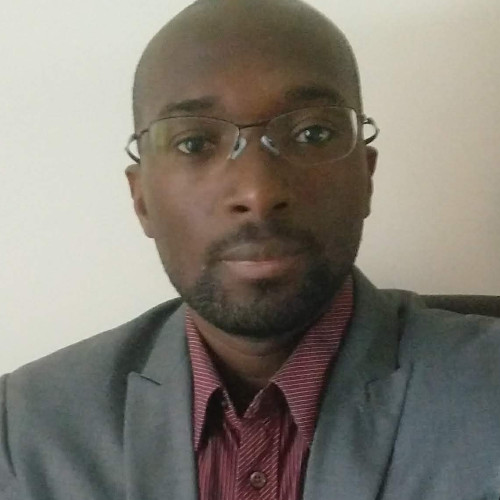 | Adama Ouattara
Djomangan Adama Ouattara is bioinformatics group leader in the omics hub at BIOASTER, a technology research institute in microbiology (Lyon, France). He held a PhD from Ecole Centrale de Nantes in automatic control and electrical engineering (France, 2006). He next worked as postdoctoral researcher in theoretical biology (Université Libre de Bruxelles, Belgium) and systems toxicokinetics (CNRS/INERIS, France) before working as software project manager in industry during 2 years in systems oncology (Sobios, BioIntelligence consortium). His current research activities at BIOASTER encompasses omics data analysis in discovery data science (metabolomics, proteomics, genomics, transcriptomics) and genome-scale metabolomics in systems biology. His interest in whole genome metabolomics is to bring this technology to industry in the context of the optimization microbiota consortia, host-microbe interactions, bio-production and drug optimization. |
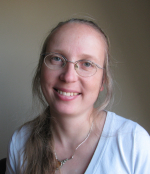 | Karoline Faust
Karoline Faust is a biologist turned bioinformatician who graduated at the Humboldt University in Berlin and earned her PhD at the Université Libre de Bruxelles under the supervision of Prof. van Helden. She worked as a postdoctoral researcher at KU Leuven and VIB in the group of Prof. Raes. She is currently an Assistant Professor, heading the group of Microbial Systems Biology at KU Leuven. Her main research interests include the construction of microbial networks, the analysis of microbial sequencing data and the investigation of microbial community dynamics in silico and in vitro. Karoline is the main developer of CoNet, a popular microbial network construction tool, and of seqtime, a microbial time series analysis R package. Her work is thus situated at the intersection of bioinformatics, systems biology and microbial ecology. |
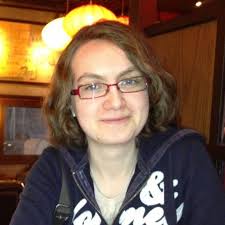 | Aisling Daly
Aisling Daly is a mathematical modeller at the Faculty of Bioscience Engineering at Ghent University. Her doctoral research involved the development of individual-based models to study microbial ecological theories relating to community diversity, stability, productivity and functionality. She is currently focused on individual-based modelling of adaptation and acclimation in marine ecosystems subject to climate change effects. Her research interests lie in the links between interaction network structure, community diversity and stability. |
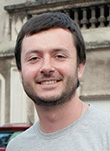 | Eugen Bauer
Eugen Bauer is a bioinformatician primarily interested in the symbioses between microbes and animals. During his PhD at the University of Luxembourg, he focused on modeling the metabolic interactions within intestinal microbial communities of the human gut microbiota. For this, he developed the R package 'BacArena' that combines individual-based with constraint-based modeling to study the spatial metabolic exchange in microbial consortia. In his current post-doctoral position at the University of Mainz, he models and analyzes the metabolism of insect symbionts. |
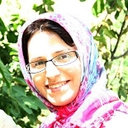 | Farnoush Farahpour (replacing Otso Ovaskainen)
Farnoush Farahpour earned her PhD in soft matter physics at Sharif university of technology in Tehran. In her doctoral researches she studied the physico-mechanical properties of charged polymers, like DNA, with a focus on their applications in Nanopore sequencing. In 2014 she joined the bioinformatics and computational biophysics group at Duisburg-Essen university, where she started her research on statistical analysis and mathematical modeling of biological communities. The main subjects of her studies are understanding the mechanisms that generate and promote diversity in systems developing under eco-evolutionary dynamics and how diversity patterns can reveal the underlying processes. |
 | Christina Kaiser
Christina Kaiser is an Ecologist with a focus on Soil microbial ecology, Biogeochemistry and Plant-soil interactions. She looks at the soil from the perspective of Complex systems science and uses both spatially explicit, individual-based modelling and experimental approaches to study how microbial interactions at the microscale lead to self-organization of microbial communities, and how this, in turn, influences soil organic matter turnover. She did a PhD in Ecology at the University of Vienna and PostDoc fellowships at the University of Western Australia (UWA) and the International Institute for Applied Systems Analysis (IIASA). She is now Assistant Professor for Terrestrial Ecosystem Science at the Centre for Microbiology and Environmental Systems Science of the University of Vienna. |
